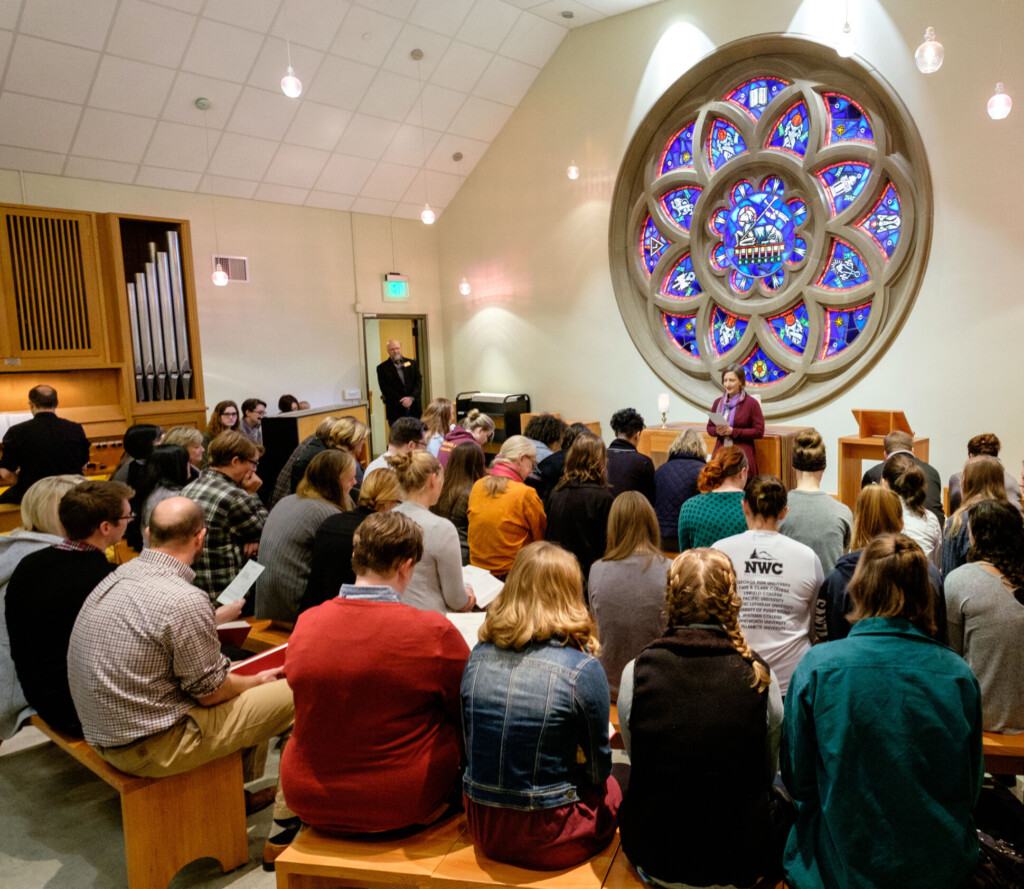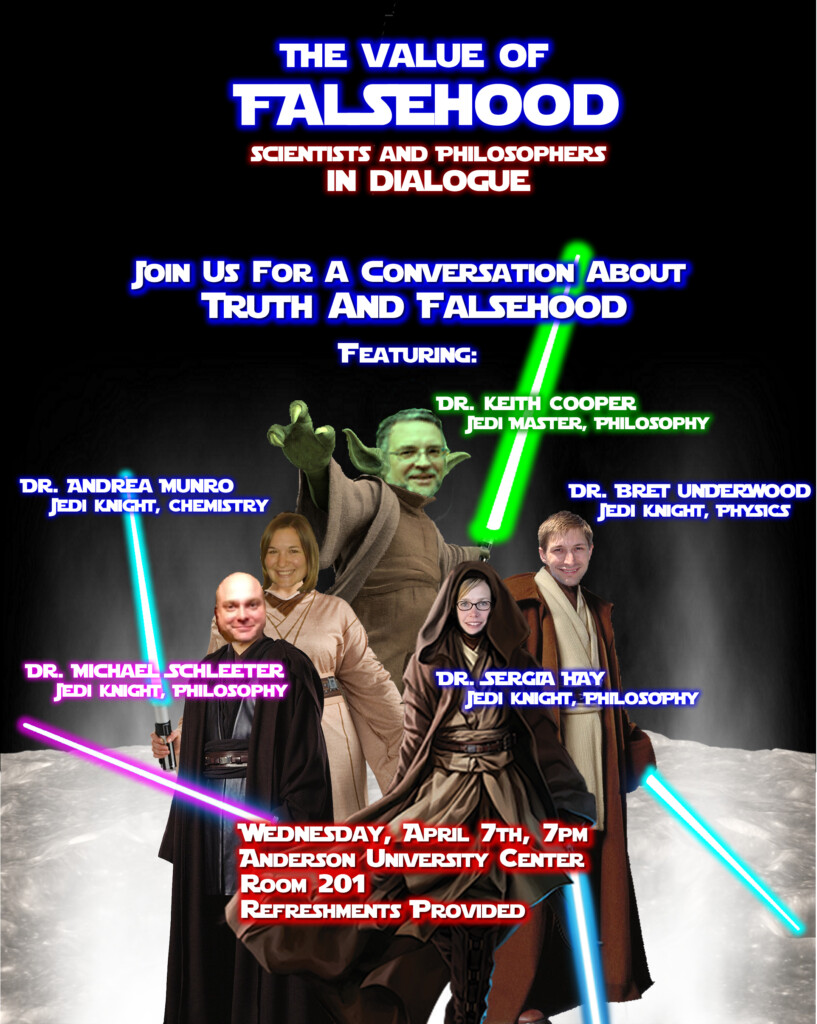Reappraising the Rift Between Faith and Reason: Could Science Help Us Think About Religion?
By Keith J. Cooper
Originally published in 1991
Tertullian, an African Christian writing in the second century of the Church, is perhaps most famous for his defiant one-liner about the resurrection, “I believe it because it is absurd.” The only trouble is: he never wrote those words, and wouldn’t have meant them if he had. They are simply a misquotation.
In fact, Tertullian, had some very positive things to say about our rational capacities, even going so far as to argue that “there is nothing which God, the Maker of all…has not willed should be handled and understood by reason.” But his phrasing of the age-old question of the relationship between faith and reason, such prominent facts of human existence, has helped to shape the discussion ever since:
What has Athens to do with Jerusalem? What concord is there between the Academy and the Church?
Faith, or reason? The question Tertullian poses is easy to ask, but has proven quite difficult to answer suitably. In recent years, some have suggested that important parallels between scientific and religious theorizing make it possible for us to look to science for help in thinking more clearly about religion. One of the most intriguing of the approaches argues that “inferences to the best explanation” are used in both areas; theists, for example, might claim confirmation for their beliefs by pointing to various features of this world and its inhabitants most adequately explained by reference to a monotheistic God.
However intriguing such an approach might look at first glance, though, many would object that the enterprise is doomed to failure. The three most common objections seem to be that religion is inaccessible (because it is above reason), that science is inapplicable (because it deals with probabilities), and that any merging of the two is inappropriate (because of the demands of unconditional commitment). In this essay, I will consider the third of these objections, especially as it applies to Christian belief, and argue that there is in fact no incompatibility.

How could it not be inappropriate to take belief in God as a hypothesis to be tested? Faith, as many would say, is a matter of commitment, unconditional commitment that precludes discussion about the strength of its rational support. Since adherents of religious faith are not prepared to conclude that their beliefs are quite improbable, they should be equally unprepared to look for empirical confirmation of their faith. As William Austin has summarized this objection,
It is of the nature of religious faith that adherence to religious doctrines must be unconditional, come what may in the way of evidence…The religious believer is committed to the doctrines of his community in the sense that it would be faithless for him to abandon them in the face of evidence; to hold them subject to falsification is not to hold them as religious beliefs at all. [The Relevance of Natural Science to Theology, p.94]
Many have agreed with this perspective, pointing out that Christians begin their confession of faith with the words, “I believe,” not with anything like “I have inquired, and found it reasonable to conclude.” On this view, anyone who would say the latter might be said in one sense to believe, but would have no religious faith at all. The very essence of religious faith involves believing without regard for the facts —even, as a tongue-in-cheek William James defined faith, “believing what you know ain’t so.”
What is usually claimed here is that religious faith is guilty of one of two things: either believing beyond the evidence in the first place, or being unwilling to adapt one’s commitment to changes in the evidence —such compliance including, as a limit, the abandoning of one’s beliefs. The second of these charges, however, is ambiguous. That one begins to doubt, suspend judgment on, or even abandon a particular belief when the evidence for it becomes scanty enough (or evidence against it full enough) accords well with W. K. Clifford’s famous dictum that, “It is wrong always, everywhere, and for anyone, to believe anything upon insufficient evidence.” But it is something else again to demand —as David Hume did in saying that, “A wise man proportions his belief to the evidence”— that one continually revises one’s attitude towards a belief according to its epistemic relation to the evidence at hand. One could be reasonable while living only by the first of these aphorisms, which George Mavrodes calls the “threshold principle,” and not also by the second, “proportionality principle.”
In our deliberations about the relationship between reason and faith, it will not do just to invoke the common perception that religious believers, unlike scientists, make blind leaps of faith and cling to their beliefs no matter what difficulties they face. One could easily parody this point of view by contrasting theological sophisticates with those unschooled in science, who have their own “sacred texts” —and gurus— to consult in time of need. Granted that plenty of religious adherents may hold beliefs that go against, or beyond, the evidence, is there any reason to think that educated and thoughtful believers must do the same? Have they no option in being faithful, due to what it means to be faithful, but to believe come what may?
Some have argued that opening religious beliefs to critical scrutiny requires viewing theism as a hypothesis, and that the provisional and tentative acceptance this would allow conflicts with the decisive adherence the theist owes to God. As Alasdair MacIntyre has put it,
The acceptance [of Hebrew-Christian belief] must be of a kind compatible with the practice of worship. Thus it cannot be in any sense a conditional or provisional acceptance, for this would perhaps make it possible to say, “O God, if there is a God, save my soul, if I have one”; but it would not make it possible to worship in the sense already described. [“The Logical Status of Religious Beliefs,” p.193]
On this account, what is demanded of the believer —for the worship rendered to be acceptable— is unconditional belief; but this runs counter to an allegiance to truth. To suggest an obligation to be loyal both to one’s religious beliefs and to the quest for truth is troublesome, worries Basil Mitchell, for the only way to reconcile unconditional belief with the requirements of truth is if the beliefs in question are logically immune from refutation (and so from confirmation as well).
Robert Adams, in discussing Kierkegaard’s opposition to objective reasoning about religious beliefs, says that he can understand something of the appeal of a view such as MacIntyre’s.
There is undoubtedly something plausible about the claim that authentic religious faith must involve a commitment so complete that the believer is resolved not to abandon his belief under any circumstances that he regards as epistemically possible. If you are willing to abandon your ostensibly religious beliefs for the sake of objective inquiry, mightn’t we justly say that objective inquiry is your real religion, the thing to which you are most deeply committed? [“Kierkegaard’s Arguments Against Objective Reasoning in Religion,” p.235].

On the other hand, Adams suggests, Kierkegaard (and by extension, MacIntyre) also seems to leave something out. An important part of religious teaching is that one ought to be humble and teachable, he says, open to correction and growth of insight. But this would have to be abandoned if we were to agree that religious commitment requires “an unconditional determination not to change in one’s important religious beliefs.”
Can these two elements be reconciled? One might begin by clarifying what an “epistemically possible” set of circumstances would be. There are —and must be, given the sorts of beliefs involved in religion— situations that could be envisioned whose occurrence would give one pause, would lead one to reconsider the correctness of one’s beliefs. Denying this prevents not the idolatry of worshipping reason, but the very possibility of worship being more than guesswork, a dumb and unthinking act directed to an unknown god. So it is clearly possible, logically, that there be a situation in which the epistemically correct thing to do would be to abandon one’s faith.
But if we take epistemically possible to mean something along the lines of likely or plausible given one’s current set of beliefs, we get a different result: one need not deny that a faith-threatening situation is conceivable, but only that it is easily conceivable that one know what one now knows and yet be mistaken in one’s beliefs. For example, I find it hard to imagine being mistaken in thinking that there is no logical contradiction in affirming the existence of both God and evil; I understand what is would be like to have a proof to the contrary, but in a real sense I do not regard it as at all possible that I be wrong about this.
Put this way, all that is required of the believer is that he or she regard being wrong as presently a live option. This is not an abandonment of religion for objective inquiry, but rather a recognition that serious religion —faith authentic enough to care about being right— involves careful inquiry. (My feeling this way about the problem of evil is a result not of some irrational commitment, but of my having good reasons for believing what I do about the issue, and for believing that it is unlikely I have missed something crucial.) A religious commitment is not to be abandoned lightly because it should have been adopted lightly, and a sign of the latter is that one find it difficult to think that one could be mistaken. Not all tenacity of belief is underserved.
If religious commitment requires belief in those claims underlying one’s commitment, then unreasonable belief would seem to yield unreasonable commitment. But, one might object, doesn’t then unconditional commitment require unconditional belief? MacIntyre, for example, contends that “part of the content of Christian belief is that a decisive adherence has to be given to God. So that to hold Christian belief as a hypothesis would be to render it no longer Christian belief” (p.181).
As they say, it all depends on what you mean by “unconditional”; but it also depends on what is invoked in “commitment”. It may be true that unconditional commitment to a given proposition requires not only that one never give it up, but that one never think of doing so. But MacIntyre speaks of decisive adherence being given to God, not to any proposition. The object of faith, in any theistic religion, is not a belief or attitude, but God; it is belief in God, and not (at least primarily) belief that there is a God, which ought to be non-tentative. And we cannot assume that such commitment is only appropriate when the beliefs it presupposes are held non-tentatively, come what may in the way of evidence.
On the contrary, others have suggested, there is no necessary connection between the sincerity of commitment and an unreasonable tenacity in belief. Genuine faithfulness, on this account, involves being ready to make sacrifices for one’s beliefs; to risk comfort and safety, maybe even one’s life; and to examine oneself critically in the light of the demands of faith.
But these are very different from any requirement that one resist changing one’s mind even when there is good reason to think one is mistaken. Declining to live out one’s faith in the face of inconveniences shows a lack of commitment; but backing down from religious commitments when experience or reflection renders those beliefs highly questionable is not faithfulness at all.

After all, if one’s central religious beliefs are mistaken then there is no one, or no ideal, there to whom to be committed. (As Roger Trigg points out in Reason and Commitment [p.55], “If my doubt reaches the point where I lose my beliefs, it is true that I must lose my faith. I cannot have faith in anything which I am certain is false or in anybody who I am sure is merely a character from legend.”) It is one thing to say that true faith commands allegiance; but to insist that faith expects allegiance even though it is clearly false is to demand both the philosophically ridiculous and the psychologically sublime. While Christians have a responsibility to trust in God, this is not the same as an unconditional duty to go on believing there is a God, no matter what the evidence shows.
We might put it this way: once a religious conceptual system is adopted, there may be within that system a requirement of (some form of) unconditional faith. But such a requirement of is not “detachable” —it would be a mistake to construe it as an obligation, imposed from outside, always to embrace that particular religion, let alone to embrace it unconditionally.
Can this be so, and it still be proper to think of faith as unconditional? (And if not, isn’t that a telling criticism against my position?) Austin argues well that the possibilities of criticism, and of religious beliefs that are always less than certain, does not rule out a legitimate sense in which faith is unconditional.
To say that religious commitment is unconditional is to say, I would suggest, that the actions and attitudes to which one is committed by his religious assertions take precedence over all others… It gives us a sense in which a man could properly say that he is unconditionally committed to his religious beliefs, while yet acknowledging that evidence might sometime compel him to abandon them. So long as he holds them, the actions and attitudes to which they commit him cannot be set aside in deference to those implied by other self-involving assertions he would make. (So long as he believes in God, he owes Him a “decisive adherence”.) But it would not show that his commitment was defective, if at some later time he ceased to hold them, on the grounds that they did not (and some other set of beliefs did) make sense of his experience. [p. 113].
This perspective is, so far as I can tell, true to traditional theistic accounts of faith, and it succeeds in making religious faith important (which, to its adherents, it clearly is) without making it unthinking (which, to perhaps fewer of its adherents, it is not). It retains an understanding of faith as involving MacIntyre’s “fundamental conviction,” without —by equivocating on “fundamental”— leaving that faith unsupportable by evidence.
One might plausibly hold that belief in God should be basic or fundamental; but in what way? Some seem to think that this means something like “foundational,” without support from other beliefs one holds. But others suggest that it means something more like “central” —perhaps along the lines of a well-entrenched belief in a scientific research programme’s core. On this view, whether a belief is basic (and how basic it is, if there are degrees) is a separate issue from that of epistemic support; rather, it is a question of how far through one’s conceptual scheme the belief ramifies, how much would have to be changed if the belief were abandoned.

If this is so, then those beliefs central to a religious conceptual system end up just about where one might have thought they would: with other metaphysical beliefs. We all have beliefs about what there is, what is of value, and how knowledge may be obtained, that play a crucial role in our worldview. Though they are not closely tied to experience in the way a low-level scientific theory is, most of us would insist both that we really did have some reason for accepting them, and that we were open to being shown wrong. They are beliefs on which we continually act, not waiting around for further confirmation or disconfirmation (but willing to accept it if it comes). We do not worry about accusations of inappropriate commitment, but trust that others will be able to distinguish between that tentativeness always present in the absence of certainty and that which would impede our living in accordance with our beliefs.
Mavrodes suggests that we may have a psychological disposition to live according to what he terms the proportionality principle —in Locke’s words, to regulate our degrees of assent according to a belief’s epistemic standing. But he suspects that there are also tendencies to make the strength of belief a function of the content of the belief rather than a function of its evidence. “I suspect,” he writes, “that one important [instance] is the tendency to hold fundamental religious beliefs rather strongly if one holds them at all. This tendency may itself be just a special case of a still more general tendency, that of holding one’s ‘life-orienting’ beliefs strongly.” [“Belief, Proportionality, and Probability,” p. 65].
Such beliefs, whether religious, ethical, or even scientific, are ones for which most of us, most of the time, think we have good reasons; but they do not tend to be beliefs that are often or easily changed. Mavrodes argues that this gives us no reason to think that we would be unlikely to give any of them up should enough of their support be removed. Nor should we think that one would be likely to act imprudently on beliefs not subject to the proportionality principle: that a belief is strongly or passionately held does not entail that one will act on that belief unwisely. To object that a person who does not proportion his or her belief to the evidence will take unqise risks confuses the strength of belief that a given claim is true with the belief in the strength of the evidence.
These matters need further discussion. But I have suggested here that there is no reason to think that the degree of commitment often involved in religious belief should prevent one from looking at the evidence, or from reacting to that evidence. There is, in fact, reason to think that beliefs central to one’s worldview, religious or not, are not and should not be subject to a roller-coaster ride based on the latest epistemic perturbations. The factor of personal allegiance peculiar to theistic religious faith need not be a major culprit here.
I conclude that there is nothing about the nature of religious belief that should prevent a more careful exploration of the attempt to learn from the philosophy of science how better to do the philosophy of religion. Whatever sort of commitment it is that authentic faith demands does not preclude an honest assessment of the reasonableness of thinking that faith’s metaphysical claims true. To paraphrase G. K. Chesterton, there may well be occasion at a later time to pronounce such an approach tried and found wanting; but we ought not be satisfied —either out of misplaced reverence or mistaken philosophy— to pronounce it wanting and leave it untried.


